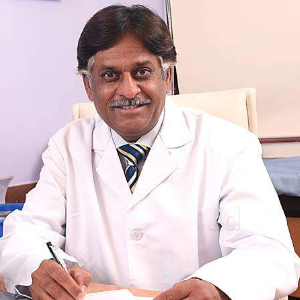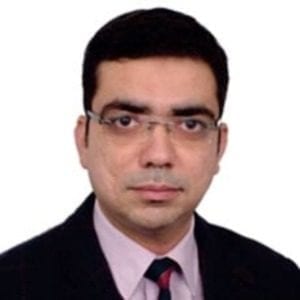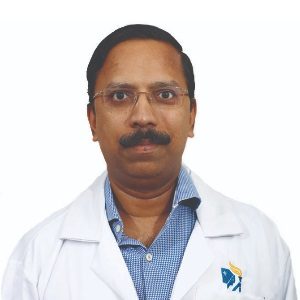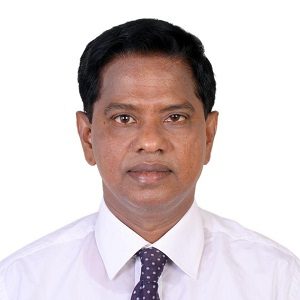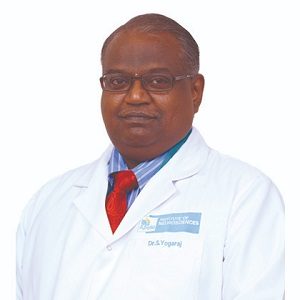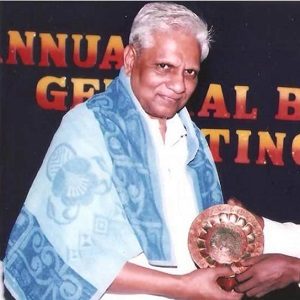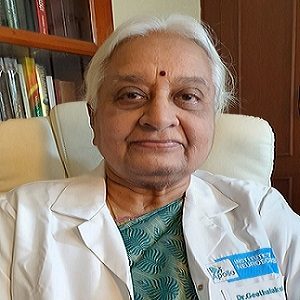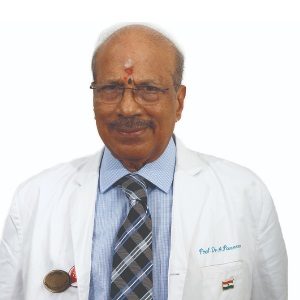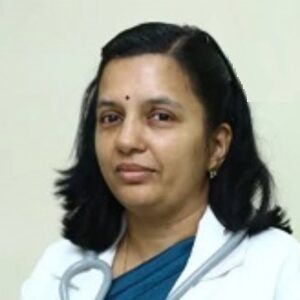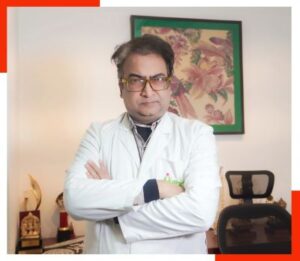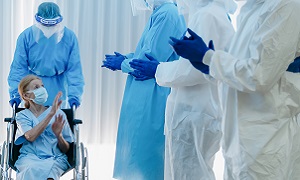Best Doctors in India for Cerebral Angiogram
- Neurosurgeon, Mumbai, India
- Over 20 years’ experience
Profile Highlights:
- Dr. Suresh Sankhla is an accomplished Neurosurgeon in Mumbai specializing in endoscopic neurosurgery and onco-neurosurgery.
- Dr. Sankhla acquired his training in neurosurgery under the guidance of the best trainers from well-known medical institutes and hospitals in Ireland, UK, USA as well as India.
- He has an equal interest in research and has published more than 100 articles, papers, and abstracts in renowned national and international peer-reviewed journals.
- Interventional Neuroradiologist, Gurugram, India
- Over 20 years’ experience
Profile Highlights:
- Dr. Tariq Matin is a Neurologist in Gurugram specializing in Interventional Neuroradiology.
- He holds over a decade of experience in the field and holds a fellowship from Foch Hospital, France in interventional neurosurgery and also received his training from AIIMS in Delhi.
- He provides treatment for acute ischemic stroke with the use of mechanical and chemical thrombolytic agents and endovascular coiling of complex aneurysms.
- Neurologist, Chennai, India
- Over 33 years’ experience
Profile Highlights:
- Dr. Arulselvan V L is one of the finest Neurologists in India, with an overall experience of nearly 33 years.
- Dr. Arulselvan was bestowed with an Excellence Award for aptitude in Anatomy in his academics.
- He takes a holistic approach to treating conditions like Myelitis, Encephalitis, Meningitis, Cerebral or Brain Aneurysm, PSR, PBC, Brain Tumor Surgery, and Sleep Disorders and performs different therapies.
- He has a periodical ‘JIAN’ under his name.
- Neurologist, Chennai, India
- Over 30 years’ experience
Profile Highlights:
- Dr. Rajendran S is a veteran Neurologist in Tamil Nadu with nearly 3 decades of experience.
- Dr. Rajendran acquired advanced training in Neuropsychiatry from Cardiff, UK, and also obtained M.Sc. in Clinical Neurology from London.
- He treats conditions like Stroke, Parkinson’s Disease, Back & neck pain, Neurological dysfunction, Surgical Clipping, Endovascular Coiling, Cerebral Angioplasty, Lesionectomy, MVD, PSR, and Restless Leg Syndrome, etc.
- Neurologist, Chennai, India
- Over 24 years’ experience
Profile Highlights:
- Dr. S. Yogaraj is an experienced Neurologist in India, having over 24 years of experience in the field.
- He specializes in treating emergency neurology conditions like stroke, neuromuscular disorders, CNS infections, Peripheral Nerve issues, etc.
- Dr. Yogaraj is instrumental in designing, implementing, and reporting electrophysiological training. He trained physicians, neurologists, and paramedical staff.
- Neurologist, Chennai, India
- Over 45 years’ experience
Profile Highlights:
- Dr. Dhanaraj is a recognized neurologist in India with 45+ years of experience.
- Dr. Dhanaraj was awarded Life Time Achievement Award from Tamil Nadu DR. MGR University, Chennai for his exemplary services.
- He presented about 50 research papers and received awards for a couple of them. Dr. Dhanaraj also authored a book on Acute Cardiovascular disease.
- Neurologist, Chennai, India
- Over 45 years’ experience
Profile Highlights:
- Dr. Geetha Lakshmipathy is one of the most renowned Neurologists in India with a rich experience of more than 45+ years. Her experience stretches across academic, research, clinical, and administrative work.
- Dr. Geetha Lakshmipathy offers the best medical services for Nerve and Muscle Disorders, Brain mapping, Spinal Disorders, Digital Subtraction Angiography, Epilepsy Treatment, Deep Brain Stimulation, skull surgery, Peripheral Neuropathy (Diabetic/ CIDP/ CIDP), etc.
- Dr. Lakshmipathy presented and published many research studies at various places and guided students of DM-Neurology for their thesis.
- Neurologist, Chennai, India
- Over 50 years’ experience
Profile Highlights:
- Dr. Panneer is one of the most renowned Neurologists in India with huge 50+ years of research and clinical experience in the field.
- Dr. Panneer is believed to have expertise in Migraine treatment and neurological disorders management.
- He offers consultation and medical services for Neurosurgery, cerebral angioplasty, Stereotactic Radio Surgery, PBC, Alcohol Withdrawal Syndrome, sleep disorders, skull base surgery, etc.
- Pediatric Neurologist, Chennai, India
- Over 26 years’ experience
Profile Highlights:
- Dr. Sivaji Vani serves as a Pediatric Neurology Consultant at Apollo Hospitals, Chennai.
- Before Chennai, she served in the UK and has developed a sound knowledge in the field of Pediatric Neurology.
- Her overall experience of 26 years involves the treatment of patients with giddiness problems, neurological problems, vertigo, epilepsy, stroke, spinal disorders, etc.
- Neurologist
- Over 20 years' of experience
Profile Highlights:
- Dr. Praveen Gupta is one of India’s top Neurologists, who is currently serving as the Principal Director & Unit Head of Neurology at Fortis Memorial Research Institute, Gurugram.
- Over the course of his 23-years career, Dr. Gupta has made a lasting impact on the field of neurological treatment.
- Among his many firsts, Dr. Gupta founded the first-ever stroke centre in Gurugram and pioneered the use of single-arm mechanical thrombolysis, which completely changed the way strokes are treated in the area.
- He also pioneered Deep Brain Stimulation (DBS) treatments for Epilepsy and Parkinson’s disease, raising the bar for neurological care.
- Gupta has been the founder of two prestigious neurology departments at prestigious corporate hospitals, Artemis and Paras. He has consistently managed the highest possible number of both inpatient and outpatient cases, with an exceptional daily volume of 50 and 100 patients respectively.
- As a highly sought-after speaker, Dr. Gupta often contributes to the progress of neurological treatments and services by sharing his knowledge at national and international conferences.
Best Hospitals in India for Cerebral Angiogram
Narayana Superspeciality Hospital, Gurugram
- City: Gurugram, India
Hospital Highlights:
- Situated near DLF Cyber City, Gurugram, Narayana Superspecialty Hospital is one of the top medical facilities in the Delhi NCR region, catering to the needs of the people. Known for its commitment to quality medical care and patient service, the hospital is a state-of-the-art facility with planned and well-equipped sections, which includes a spacious OPD area as well as comfortable patient rooms.
- It is the closest super-specialty hospital from Indira Gandhi International Airport towards Gurugram, and also the nearest super specialty hospital from DLF Cyber City. It is also close to major residential areas in Gurugram.
- It is part of the renowned Narayana Health Group. Established in 2000, by Dr. Devi Shetty, a renowned cardiac surgeon, it has grown to be one fo India’s leading healthcare groups.
Paras Hospital, Gurugram
- City: Gurugram, India
Hospital Highlights:
- Paras hospital was established in 2006 and is the 250 bedded flagship hospital of Paras Healthcare.
- The is supported by a team of doctors of international and national repute.
- The hospital is NABH accredited and also the first hospital in the region to have a NABL accredited laboratory.
- The hospital provides specialty medical services in around 55 departments including Neurosciences, Joint Replacement, Mother & Child Care, Minimal Invasive Surgery, Gynecology and Obstetrics, Ophthalmology, Dermatology, Endocrinology, Rheumatology, Cosmetic and Plastic surgery.
- The hospital is equipped with state-of-the-art technologies.
Pushpawati Singhania Hospital & Research Institute, New Delhi
- City: New Delhi, India
Hospital Highlights:
- Established in 1996, Pushpawati Singhania Research Institute is one of the top hospitals in the NCR region, as well as one of the top facilities in India for gastroenterology. The hospital is one of South Asia’s first institutes in medical and surgical treatment for diseases related to digestion.
- The hospital is equipped with state-of-the art facilities coupled with the latest equipment as well as renowned consultants from various parts of India as well as other parts of the world.
Rela Hospital, Chennai
- City: Chennai, India
Hospital Highlights:
- RIMC is a multi-specialty hospital in a sprawling area of 36 acres located in Chromepet, Chennai, Tamil Nadu, India.
- The facility has 450 beds including 130 critical care beds, 9 operating rooms, modern reference laboratories and radiology services, and is conveniently located near road, rail and air transportation.
- RIMC is led and managed by world-renowned physicians committed to healthcare.
- RIMC offers the broadest range of clinical care, education, and research. The hospital offers state-of-the-art technology and modern treatment facilities designed to provide health care at an affordable cost.
- Rela Institute is driven by patient needs, comfort and confidence.
Reliance Hospital, Mumbai
- City: Mumbai, India
Hospital Highlights:
- Reliance Hospital is one of the best super-specialty care hospitals in Navi Mumbai.
- The main purpose of this hospital is to become a trustworthy place for the best health and hope for society. The hospital is well connected to the suburbs of Mumbai and Navi Mumbai.
- The hospital has various specialty departments, viz., Accident & Emergency, Anesthesiology, Dental Services, Dermatology, Diabetology, Dietetics Nutrition, Endocrinology, ENT, Gastroenterology, General Surgery, Gynaecology And Obstetrics, Hepato Pancreato Biliary Surgery, Infectious Disease, Internal Medicine, Interventional Radiology, Laboratory Medicine, Minimal Access Laparoscopic Surgery, Nephrology, Neurosciences, Opthalmology, Orthopaedics, Paediatrics, Pain Management Palliative Care, Physical Medicine Rehabilitation, Plastic And Reconstructive Surgery, Psychiatry, Pulmonary Medicine, Radiology, Rheumatology, Transplant, Urology Andrology, Vascular Surgery
Sir Ganga Ram Hospital, New Delhi
- City: New Delhi, India
Hospital Highlights:
- Sir Ganga Ram Hospital, New Delhi is known to provide the latest medical procedures with the latest technology in all of its units.
- The hospital has a team of reputed doctors, nurses, and healthcare professionals that ensure that patients receive quality care at affordable costs.
- Staffed with a team of highly qualified doctors, dedicated nurses, and paramedical and non-medical staff, the hospital aims to lead in healthcare delivery, medical education, training, and research.
- As per the vision of the founder, the hospital also provides free treatment to the economically weaker sections of society.
- Sir Ganga Ram Hospital also provides training to young doctors under the Diplomate in National Board(DNB) program. The DNB program at the hospital was started in 1984 and it is known for currently running the maximum number of DNB specialties in the country. It also has the distinction of having the first bone bank in India.
S L Raheja Hospital, Mahim, Mumbai
- City: Mumbai, India
Hospital Highlights:
- SL Raheja hospital is a 140-bed multi-specialty tertiary care hospital that is being managed by Fortis Healthcare Ltd.
- The hospital is a benchmark in healthcare and medical facilities in the neighborhood of Mahim & the western suburbs.
- L.Raheja Hospital, Mahim has one of the most effective ICU and Casualty care services.
- The hospital provides specialty medical services in Cardiology, Oncology, Neurology, Orthopedics, Mother & Child Care, and in Diabetes.
W Pratiksha Hospital, Gurgaon
- City: Gurugram, India
Hospital Highlights:
- W Pratiksha Hospital, Gurugram, is one of the best hospitals in the NCR region. It is also a top hospital in India for IVF. Since its inception, the hospital has performed over 5500 successful IVFs. The hospital also specializes in gynecology.
- With over 20 years of experience in providing quality healthcare, the hospital is known as one of the most trusted and valued health providers in India.
- Equipped with world-class medical facilities and advanced technology, the hospital’s doctors and clinicians also have a track record of delivering excellent results. The hospital is also known for focusing on preventive well-being as much as on curative treatment.
- The hospital has earned the trust of its patients, by providing the best available treatments at affordable costs.
Wockhardt Hospitals, Mumbai
- City: Mumbai, India
Hospital Highlights:
- Wockhardt Hospitals were established in the year 1973, originally called First Hospitals and Heart Institute.
- Wockhardt Hospitals are super specialty health care networks in India, nurtured by Wockhardt Ltd, India’s 5th largest Pharmaceutical and Healthcare company.
- Wockhardt Hospitals is associated with Partners Harvard Medical International, an international arm of Harvard Medical School, USA.
- Wockhardt Heart Hospital performed India’s first endoscopic heart surgery.
- The hospital has a state-of-the-art infrastructure equipped with the latest technologies and modern equipment.
- It has special Centers of Excellence dedicated to the major specialties to provide hassle-free and high-quality clinical care.
Cerebral Angiogram
Cerebral angiogram is an image that can help your doctor find blockages or any kind of abnormalities in the blood vessels of your neck and your head. To get the image, the doctor needs to perform a diagnostic test termed a cerebral angiography. The test is performed with the help of a contrast medium, which the doctor injects into your blood.
Purpose
The procedure is used to detect or confirm abnormalities within the blood vessels in the brain, which can include:
- an aneurysm, a bulge or a sac that develops in an artery due to weakness of the arterial wall
- arteriovenous malformation, a tangle of dilated blood vessels that is known to disrupt normal blood flow in your brain.
- atherosclerosis, a narrowing of the arteries.
- vasculitis, an inflammation of the blood vessels
- a blood clot
- a brain tumor.
- a tear in the wall of an artery, which is known as a vascular dissection.
- a stroke
The test can be performed for multiple reasons which include evaluating the arteries of the head and neck before surgery. The test can help provide additional information on abnormalities which are seen on MRI or CT of the head, such as blood supply to a tumor. The test can also be performed as preparation for other medical treatments, such as the surgical removal of a tumor. It can be performed as preparation for minimally invasive treatment of a vessel abnormality as well.
The test can help diagnose the causes of several symptoms such as:
- Severe headaches
- Dizziness
- Slurred speech
- Blurred or double vision
- Loss of coordination or balance
- Weakness or numbness
Preparation

First, you should talk to your doctor regarding how you should be preparing. You might not be able to eat or drink anything after midnight before the procedure. It is also likely that your doctor will ask you to stop taking any medications that can increase the risk of bleeding. These can include blood thinners, anti-inflammatory medications or aspirin.
If you have any kind of allergies or medical conditions, you will need to inform your doctor in advance. Sometimes people are allergic to the contrast material which is used during the procedure. Let your doctor know about any allergies that you have including allergies to anesthesia or the contrast material.
Also, the risk of complications can also increase if you have certain illnesses and conditions. For example, if you are suffering from diabetes or kidney disease, then the contrast material might cause temporary damage to the kidneys.
Procedure
For this test, your healthcare team will be including a radiologist, a radiology technician, a neurosurgeon or a neurologist specializing in interventional radiology.
You will most likely be sedated before the procedure. To stabilize your head, a strap, tape or sandbags are going to be used. It is quite important that you lie still during the test.
First, your doctor will be sterilizing an area of your groin. He/she will insert a long, flexible tube known as a catheter, through your blood vessels and into your carotid artery. This is the blood vessel in your neck responsible for carrying blood to the brain.
A contrast dye will flow through the catheter and into the artery. From there, it will be traveling to the blood vessels in your brain. You might receive a warm feeling as the dye flows through your body. Your doctor will take several head and neck X-rays. During this time, you might be asked to hold still or even hold your breath for a few seconds.
After this is done, your doctor will remove the catheter and place a dressing over your insertion site. The entire procedure generally takes between one to three hours.
After the procedure
You will next be sent to a recovery room, where you will need to lie for around two to six hours before you are sent home. At home, take care not to lift any heavy objects or overexert yourself for a minimum of one week.
If you experience any of the following, call your doctor:
- Signs of a stroke, including slurred speech, weakness, numbness or vision problems
- Redness and swelling at the catheter insertion site
- Swelling or coldness of the leg
- Dizziness
- Chest pain
A radiologist will be able to interpret your results when they are available. These results will be shared with you by your doctor to discuss follow-up tests or treatment.
Risks
Cerebral angiography carries some risks with it, although they are rare. They generally include:
- Stroke
- Damage to the blood vessels, including an artery getting punctured
- Blood clots, which can form around your catheter tip
- Make sure to discuss all the risks carefully with your doctor before you undergo the procedure.

